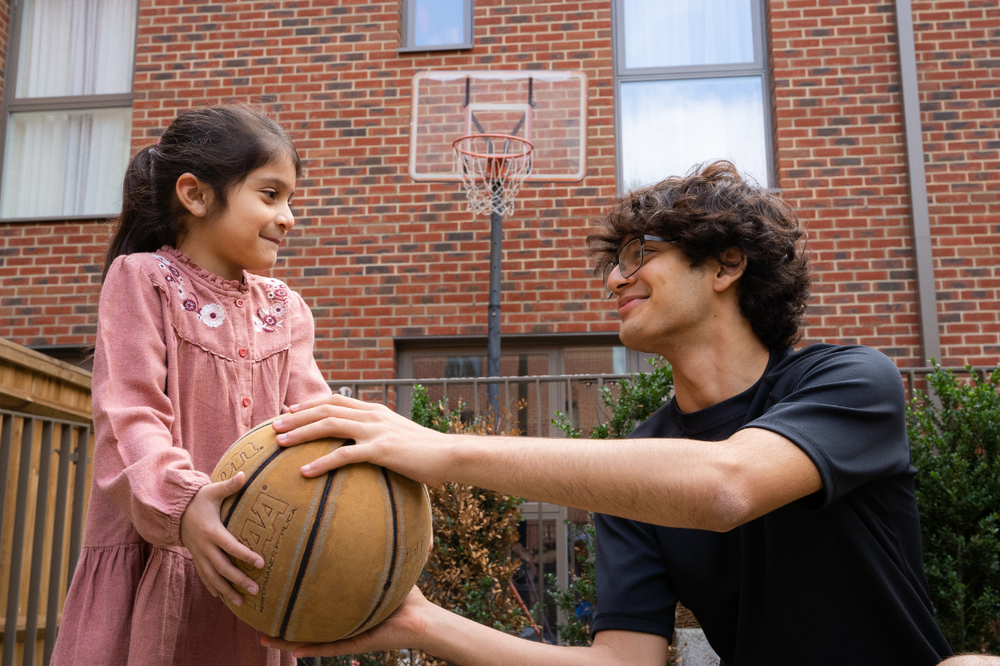Fostering families
Fostering can be a wonderful and rewarding experience for the whole family.
Request your free guide to fostering todayAction for Children Fostering recognise that fostering has a significant impact on all household members and the wider family and friends network.
Everyone in the household needs to be committed to fostering.
We understand the vital role that children in the household of foster carers can play in the success of fostering.
We are available to all family members for support and advice whenever you need us, 24/7 year-round.
Fostering will have a huge impact on any existing children in the household.
Action for Children Fostering provides support to the whole fostering family and engages the existing children at the very start of the fostering process.
Watch Lynda's story to learn about her journey as a foster carer.
Fostering a child when there are other children in the household can be hugely beneficial to the foster child.
It provides them with other young people to engage with and could give them a friend for life.
Perhaps they needed to be placed away from their siblings, in which case having other young people in the household can be both therapeutic and a positive distraction. It could also simply be that they have someone closer to their own age that they can talk to, play with and learn from.
Seeing how another young person behaves and interacts with adults on a day-to-day basis can help develop a foster child’s social skills and have a positive influence on them.
It will probably take a few months of adjustment for the whole family. Having a vulnerable child or young person in your care means sharing your family home with them.
Any child/children living in the household will have to learn to share their space, toys and share you with the new foster child. This may be difficult for them at first but we’ll provide you with techniques and suggestions on how best to manage this, so that all children in your household feel equal.

Benefits to young people in the household
Companionship
If they are an only child, the companionship of having someone similar in age is just as beneficial to them as it is to the foster child and they may become great friends.
Develop social skills
All children will benefit from learning to share their toys and space and will help to develop their own social skills.
Greater appreciation
Learning the difficult situation of a foster child’s life may give the existing child a greater appreciation for their own circumstances.
Learning to be flexible
As a foster carer you may have a number of children and young people who come into your home. The regular adjustments can have a positive impact on the other children living there, learning to be flexible and sociable with a variety of people.
Develop empathy
Meeting vulnerable children who have had very different life experiences and may be from different religions, cultures or backgrounds can be a valuable education, giving them a greater insight, compassion and empathy for people they meet.
Rewarding
Being part of the fostering process and knowing that what they're doing enhances the life chances of another child can be extremely rewarding for your existing children.

Foster carers do an amazing job.
Bringing a vulnerable child into your home with children already living there does require an extra level of consideration to make sure that what you're doing works for the whole family.
Some simple ways of bringing your existing children on the fostering journey with you include:
Be open and honest
Be open and honest right from the start about all the benefits and potential issues that fostering may entail.
Ask them how they feel
Ask them how they think they'll feel about sharing you, as well as their toys and space with someone they don’t yet know.
Listen
Listen to what they're telling you and explore solutions together.
Involve them
Involve them in discussions about the process.
Set expectations
Set clear expectations of behaviour and interaction between your child and the foster child.
Talk about the new foster child
Give them as much information as is appropriate for their age, so they know more about the young person coming to stay with you.
Encourage them to build a friendship
Explain the need for patience, respect, kindness and understanding.
Discuss what happens when they move out
Although it might feel sad to say goodbye, friendships can often be maintained after the fostering has ended.
Action for Children Fostering is here for them
Let them know that Action for Children Fostering is here to support them too if they need us.





